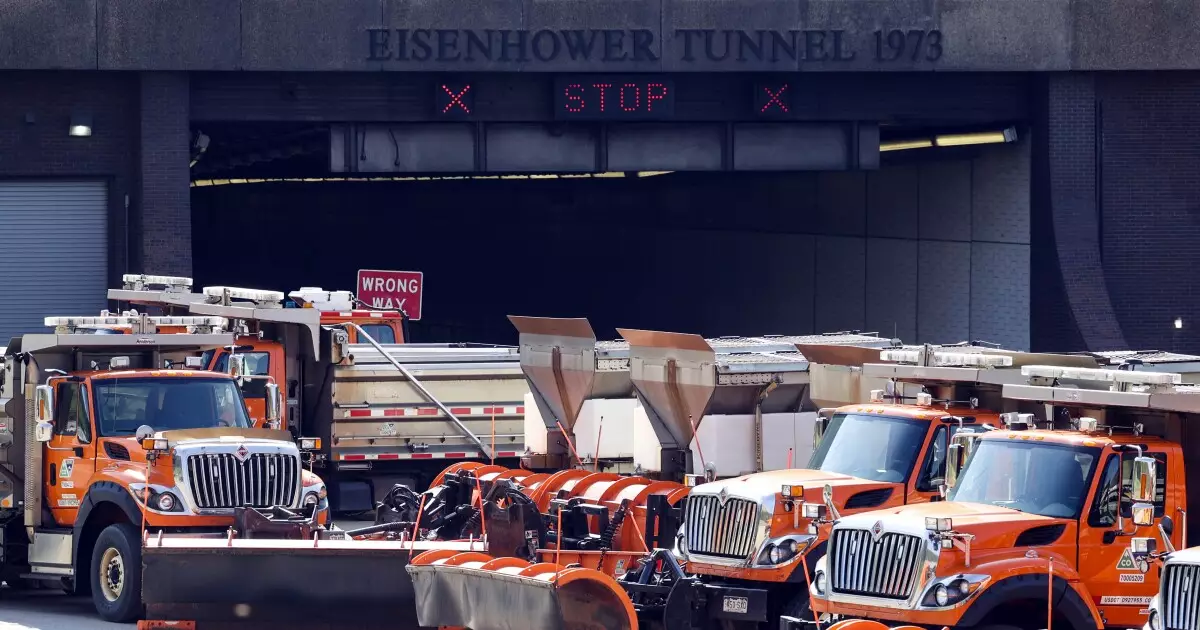Unpacking Colorado’s $212 Million Bond Sale: A Double-Edged Sword for Taxpayers

Colorado’s recent announcement regarding its $212.45 million revenue bond sale presents a critical juncture for the state. While on the surface, this bond issue is framed as a means to bolster infrastructure through the state’s Bridge and Tunnel Enterprise (BTE), a more complex reality underpins this financial maneuver. The BTE, created in 2009 under the FASTER Act, aims to finance and maintain key transportation structures across Colorado, yet its funding methods raise eyebrows about fiscal responsibility and the transparency taxpayers deserve.
The revenue bonds are backed primarily by bridge safety surcharge revenue, a fee that has become contentious as legal battles unfold over the legitimacy of these charges. The BTE recently confronted a lawsuit from Americans for Prosperity, which alleges that the state is exploiting a loophole to bypass Colorado’s Taxpayer’s Bill of Rights (TABOR). TABOR has long been heralded as a bulwark against unchecked government spending, and it imposes strict limits on tax increases. This bond sale, therefore, is not merely a straightforward financing effort but a potential pivot point in the ongoing tussle between governmental revenue ambitions and taxpayer limitations.
Legal Battles and Taxpayer Implications
The court’s ongoing deliberations over the BTE’s fee structures allow a critical lens on how taxpayer-funded projects are financed. The fees, which include surcharges based on vehicle registration and fuel sales, are designed to generate substantial revenue for state infrastructure. However, as the lawsuit progresses, the disconnection between planned projects and their funding sources raises serious questions. If the courts rule against the BTE’s fee schedule, the resulting financial ramifications could be significant, throwing the state’s infrastructure funding into disarray while exposing taxpayers to further financial exposure.
With the state seemingly trying to sidestep TABOR restrictions by labeling these fees as “revenue,” there’s palpable frustration building among conservatives and fiscal hawks who see this as an erosion of voter-protected interests. If the BTE succeeds in this endeavor, does it set a troubling precedent for other state-run enterprises to similarly evade TABOR? How many more layers of fees can taxpayers bear before they realize that their input has been undermined through backdoor taxation initiatives?
The Attachment to Infrastructure Spending
Proponents of the bond issuance highlight its necessity for maintaining Colorado’s aging infrastructure. There’s no denying the pressing need for bridge repairs and tunnel safety enhancements, and it stands to reason that all citizens should pitch in to finance these essential operations. However, the manner in which these financial obligations are structured must remain above board to retain public trust. Structural integrity in infrastructure must be matched by structural integrity in governmental financial operations.
The argument that sustainable revenue can come from increased fees is economically sound to some extent—more vehicles typically lead to higher fees—but this could create a precarious situation for lower-income residents who may find rising registration and fuel costs burdensome. This point becomes even more pressing in the context of a state still recovering from the financial realities imposed by the pandemic and an ever-widening income divide.
The Political Backlash and Future of TABOR
The ongoing challenge against TABOR sparks a mixed reaction among Coloradans. While some democratically aligned politicians argue for reform or even repeal of TABOR, asserting that it hinders essential state functions, the backlash reflects a broader sentiment from a populace that values fiscal conservatism and taxpayer sovereignty. Representative Sean Camacho, who sponsors a recent resolution aiming to challenge TABOR’s constitutionality, represents a faction that believes TABOR is outdated, while critics view these proposals as governmental overreach into the pockets of everyday residents.
With the upcoming fiscal 2026 budget facing a projected shortfall of over $1 billion, the urgency surrounding this bond sale deepens. What happens when the government is unable to meet the needs or promises made to its electorate? The fear of a “slippery slope” where the revenue streams established today morph into new financial obligations tomorrow looms large in many areas of public discourse.
The Path Forward: Balancing Act Between Financing and Fairness
Ultimately, Colorado’s decision to pursue this bond initiative reflects a deeper conflict between necessary infrastructural funding and the rights of taxpayers to have a say in what their fiscal future looks like. As the legal battles progress, the outcomes could lead to a reevaluation of how the state approaches revenue generation. Leaders must acknowledge that while enhancing vital infrastructure is a priority, they cannot do so at the expense of transparency and fairness.
Navigating this complex financial landscape requires a delicate balancing act. It is incumbent upon elected officials to ensure that taxpayer interests remain central, as any oversight may lead to significant political ramifications. The strength of a democracy often lies in its ability to engage its citizens meaningfully—Colorado’s leaders must remember this as they tread carefully into potential revenue reforms. Disregarding this fundamental principle could further alienate constituents and undermine the essence of representative governance.





